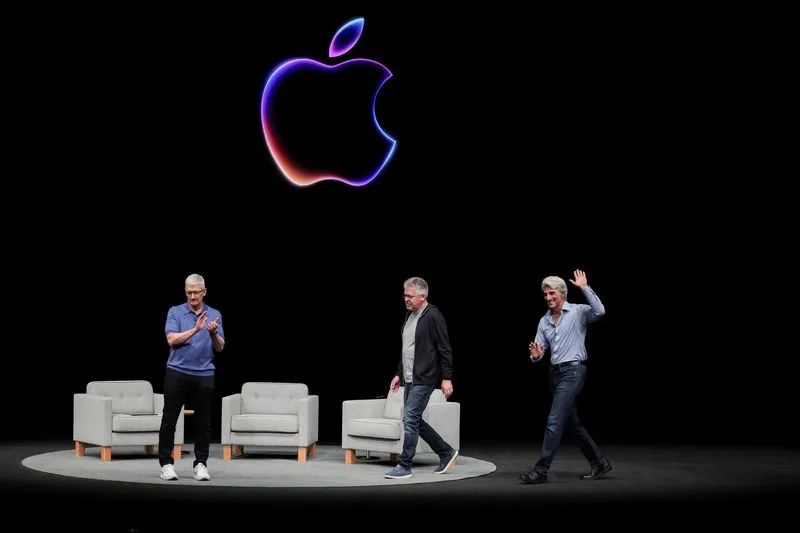By Jeffrey Dastin and Aditya Soni
Apple’s recent developer conference went beyond incorporating the latest artificial intelligence technology, such as ChatGPT, into its software. It also had a clear goal: to sell more iPhones.
In the face of uncertain consumer spending and competition from other tech giants, Apple sees AI as a way to reinvigorate its immense fan base of over 1 billion customers and reverse the sales decline of its flagship product.
According to several analysts, the software, which requires at least an iPhone 15 Pro or Pro Max to operate, has the potential to drive a wave of new purchases. Some even anticipate the largest upgrade cycle since the release of the iPhone 12 in 2020, which attracted consumers with its 5G capabilities.
Analyst Gil Luria of D.A. Davidson remarked, “What we saw today was more compelling than anything we’ve seen since.”
The company unveiled its own version of generative AI called Apple Intelligence, which has the ability to generate text, images, and other content on demand.
During the demonstration, Apple showcased how its AI technology can create personalized emojis, convert cartoons into text messages for friends, and enhance the professionalism of emails. Additionally, Siri, the company’s digital assistant, can now offer ChatGPT’s assistance if desired.
However, some analysts expressed doubts about whether consumers would be enthusiastic about incorporating more AI into their iPhones. Forrester analyst Dipanjan Chatterjee commented that while the new and improved Siri-powered Apple devices might help mitigate the decline in device revenue, they are unlikely to attract a new group of devoted followers.
Tejas Dessai from Global X also emphasized that investors are seeking a more comprehensive and ambitious AI strategy from Apple. As a result, the company’s stock experienced a 2% decline following the announcement.
Overall, the introduction of Apple Intelligence represents an upgrade to the company’s AI capabilities.
Not every iPhone will have access to Apple’s AI features, regardless of personal preference.
According to Apple, customers will need to upgrade to the iPhone 15 Pro or Pro Max, which were released in September 2023. These newer smartphones contain chips necessary for the AI to process data privately on the user’s device.
This presents a significant opportunity, according to Wedbush Securities analyst Dan Ives. He estimates that around 270 million iPhones have not been upgraded in the past four years.
“We predict that over 15% of the Apple user base will upgrade to the iPhone 16, as Apple Intelligence is the highly anticipated feature many have been waiting for,” Ives stated.
The iPhone 16 is expected to be released later this autumn.
Gene Munster, managing partner at Deepwater Asset Management, also commended Apple for its seamless integration with ChatGPT, making AI usage much more user-friendly. “They have successfully eliminated the obstacles associated with using AI,” Munster said.
According to Apple’s most recent annual report, its iPhone revenue for the fiscal year ending in September 2023 was $200.6 billion, a decrease from the previous year’s $205.5 billion.
While AI is only one aspect of Apple’s appeal to consumers, it has the potential to attract early adopters and distinguish the company for its ability to perform actions within and across apps. Martin Yang of Oppenheimer & Co. believes that this aspect will position Apple as a frontrunner in consumer AI.
